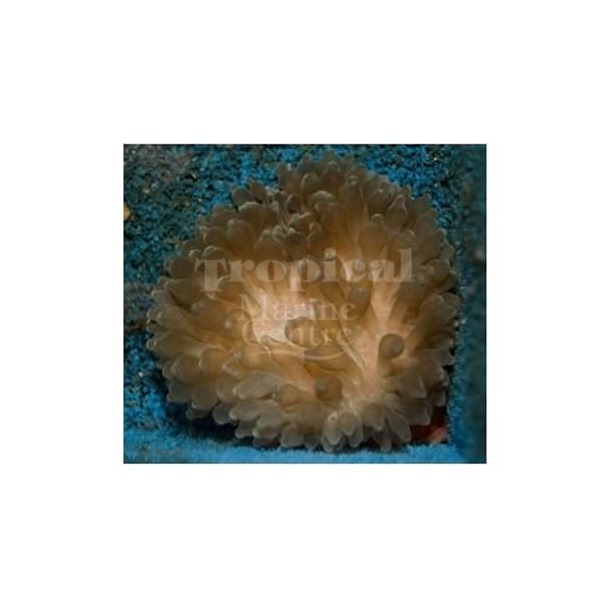Bubble Tip Anemone
You will earn 72 Points
The Bubble Tip Anemone is one of the most beautiful ornamental anemones for the home reef. When housed beneath intense aquarium lighting, Entacmaea quadricolor develops a unique bulb tip at the end of its tentacles. When hungry, this member of the Actiniidae family will stretch its sweeper tentacles to grab food from the water column. After feeding, the tentacles then shorten again and take on their bulbous appearance. Though often referred to as the Four-Colored Anemone, coloration can vary greatly from one individual to the next. Red variations may be referred to as Rose Anemones. Generally, Bubble Tip Anemones from Fiji and Tonga are shaded in soft browns, tans, or maroon, though an occasional green specimen is found. By contrast, the Bulb Anemones from Sri Lanka are typically green in color with a deep maroon base. The Bubble Tip Anemone is found in oceans around the world. The Bulb Anemone attaches its pedal disc deep within dead coral amongst rubble or on solid, living reefs. In the home aquarium, the Bubble Tip Anemone requires similar habitat and positioned amongst deeply creviced live rock or branchy corals placed in sandy substrate. Most Bulb Anemones prefer to find their own place to settle and may move about your aquarium until a suitable location is found. For best care, the Bubble Tip Anemone requires strong lighting in aquariums of at least 30 gallons. Under ideal conditions, it can grow up to 1-ft in diameter. However, most typically remain compact in size when kept under bright lighting. If the lighting is insufficient, the Bubble Tip Anemone will expand its body to make the most of the available light. It should be kept with a Clownfish for best care. At times, the tentacles of the Bubble Tip Anemone may appear stringy; this may be due to insufficient light or the need for food. Its diet should include chopped fish, shrimp, or worms if a clownfish is not present. Handle this invertebrate, and all Anemones, with care. The Bubble Tip Anemone can sting other anemones and corals that infringe on its territory.
